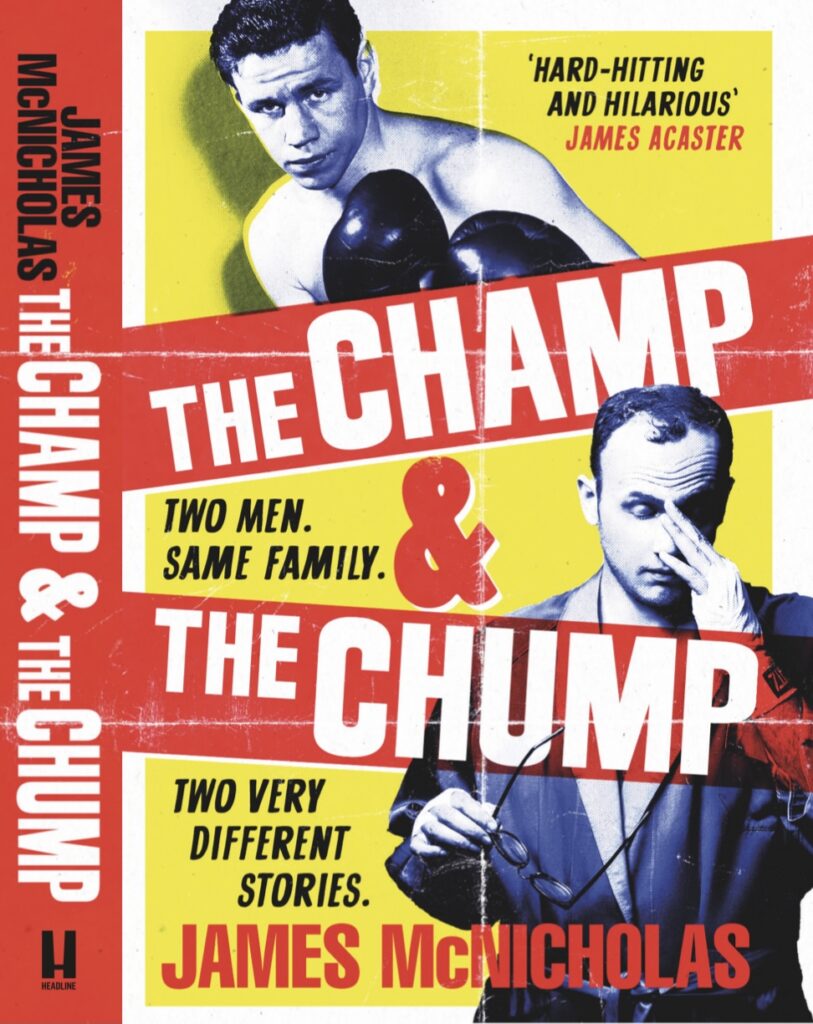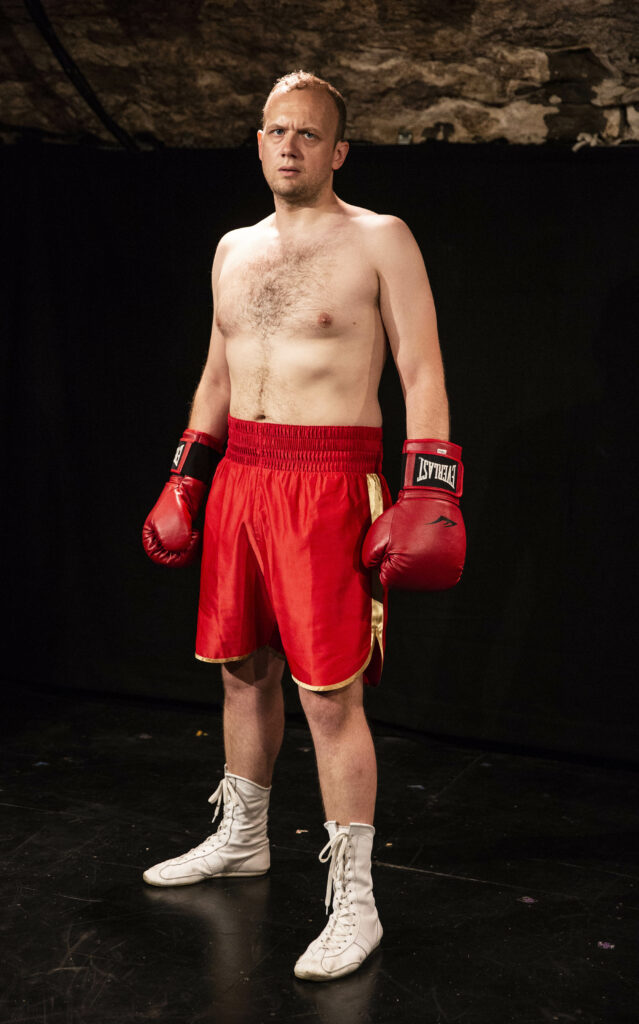Matt Ogborn talks to James McNicholas; author and grandson of former world middleweight champion Terry Downes.
Terry Downes was a fighter’s fighter, a throwback scrapper who used a stint in the US Marines as a springboard for an impressive career that saw him claim the British middleweight title en route to an emotional world crown in a three-fight series against American Paul Pender as well as a memorable victory over his hero Sugar Ray Robinson.
James McNicholas grew up idolising his grandfather Terry, his middle-class upbringing north of London a far cry from the streets of wartime Paddington where working class Terry first got the taste for boxing.
McNicholas has charted their dual paths in a new book ‘The Champ And The Chump’ that is at turns funny, moving and honourable to Terry’s life as a pugilist, businessman, showbiz favourite and family man – something we have come to expect from McNicholas as a talented writer, journalist, podcaster and actor in his own right.
The British middleweight scene has produced a plethora of gutsy home heroes such as Ted ‘Kid’ Lewis, Len Harvey and Herol Graham with others like Randolph Turpin, Alan Minter, Darren Barker and Billy Joe Saunders going on to claim world titles, too.
Downes operated in the middle of this era, the ‘Paddington Express’ getting the bug when he boxed as a junior for Fisher ABC before his family moved to Baltimore in the States to support his trapeze artist sister Sylvia – who had lost an arm in a traffic accident.
A stint in the US Marines saw his fistic prowess come to the fore again and, after winning the prestigious amateur Golden Gloves tournament, Downes was unlucky to miss out on an Olympic spot in the American team, which proved the catalyst for his professional bow back home in Blighty.
McNicholas, whose brother thinks that Ricky Hatton is the nearest modern comparison to their grandfather, reveals: “He admired lots of boxers. He liked Marvin Hagler as a fighter and he loved the Cuban fighters. Terry could sometimes be a little dismissive of modern fighters or the British fight scene. I think because he spent that time in America, he was shocked at the disparity in quality between American and British fighters. He always kind of put America on a pedestal.
“Like a lot of old timers, he thought it had gone a bit soft compared to his day which is an interesting perspective because the stakes have got higher as sport science has improved. His greatest hero was Sugar Ray Robinson, but stylistically he couldn’t have been more different. Terry was a walk forward guy, who walked on to punches. It was all about proximity and how can I get into range. If I have to take a lot of punishment to get there, so be it.”
The first half of the book is lighter on boxing detail compared to the second half, McNicholas’ honest and often amusing appraisal of his own physical plight and creative career choices grounding the fascinating family story before he digs deeper into the pivotal fights of his grandfather’s canvas journey and his retirement spent marshalling his betting shops.

Photo: James McNicholas.
Iconic names in the vein of Dick Tiger, Pat McAteer, Phil Edwards, John McCormack, Pender, Robinson and Willie Pastrano are given just the right amount of space in the book befitting their elevated status in the sport, with McNicholas displaying a flair for the theatrical as well as the sombre side of boxing in light of Benny Paret’s fatal fight against Emile Griffith that occurred just before Downes’ world coronation along with Pender’s early death and brain trauma.
McNicholas explains: “Terry did suffer in later life with dementia, but it was never truly diagnosed or truly connected to his fighting days. I didn’t know about Pender before the book and he was Patient Zero in some of those medical studies. It was quite sad to uncover some of that. Pastrano as well had quite a difficult life after he retired, so you appreciate how lucky Terry was that he had that business aspect to him and ultimately that is what really set him up.”
McNicholas himself employed a boxing trainer to try and help rejuvenate his own body and mind, the hours spent in the gym getting him into good enough shape for his one-man theatre show “The Boxer”, which drew critical praise in 2019 and helped put him on the path to padding out his family story in book form.
He declares, “I am not a natural athlete, but I sort of exist in a sporting world. I feel a bit like a fake. The show is an exaggerated version of Terry. Before each show, I would be backstage doing a bit of shadow boxing and I felt very connected to him at that point.”

experienced, for his one-man theatre show ‘The Boxer’.
Photo: Murdo McLeod/James McNicholas.
An avid Arsenal fan, who was drawn into football and a successful north London odyssey by the charismatic stylings of hipster boss Arsene Wenger, McNicholas has also grown to admire the fight game – both the raw passion and the glaring contradictions that pepper the sport.
He says, “My brother is more into boxing. I would describe myself as a casual fight fan prior to this book – as someone who would watch the big fights but not other stuff beyond that. I was able to find a lot of archive footage of Terry’s fights, which was great. I have developed an interest in the sport more generally. Having to do a bit of training and sparring opened my eyes to aspects of the sport that I didn’t understand. I have more appreciation for it now in terms of the level of fitness required, the skill, the speed, the reaction times – all those things I don’t possess, I am a great admirer of. Since then, I put it on TV even if I don’t know a single name on the bill. I have found a passion for it. It is such a compelling spectacle and so human. The way that it is covered on television particularly is incredibly captivating and it feels like a very intimate experience.”
More than anything, this engaging book could help bridge the gap between British generations who now look at the world markedly differently in 2021 in light of Brexit and the proliferation of echo chamber fake news but who actually have more in common than they think.
He adds, “It is a book about family. So many people have said to me things like, ‘I identified with this because my Grandad was a miner and his world view was completely different to mine’ or ‘He worked in a factory’ or ‘He fought in the war’. There is something about that period that engendered a mindset that is just so far from where we are now that it is natural to feel a sense of distance.”
Matt Ogborn is one of Red Bull’s leading global journalists, a former boxing contributor to Boxing Monthly, ITV and Teletext as well as an author and screenwriter for film and TV.
Main image: Terry Downes, courtesy of James McNicholas.
